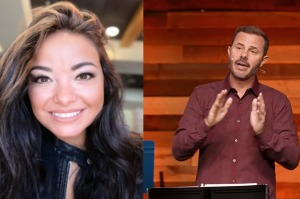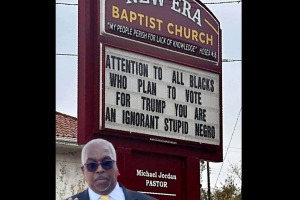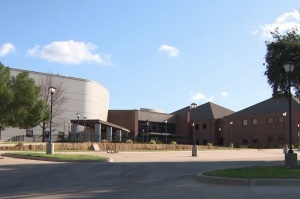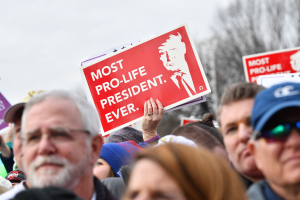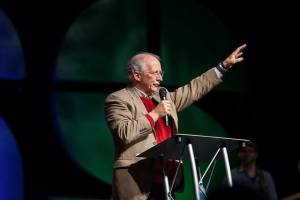Ill. eases worship service restrictions after churches turn to Supreme Court
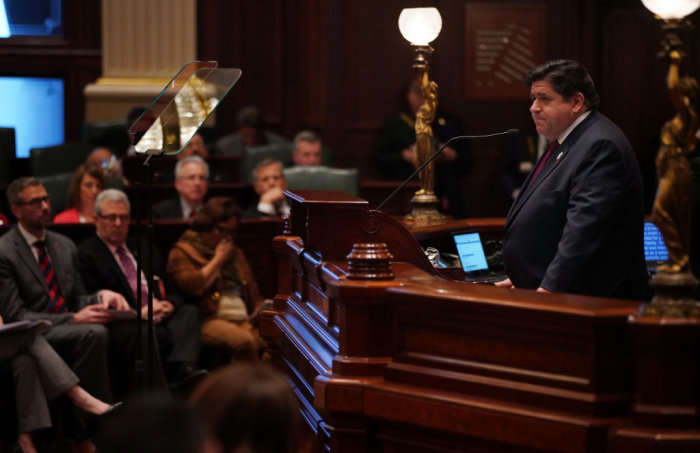
Illinois Gov. J.B. Pritzker has eased restrictions on in-person worship services in new coronavirus stay-at-home guidelines after churches appealed to the U.S. Supreme Court for relief.
In a daily news briefing Thursday, Pritzker announced a new health department guidance for faith leaders seeking to resume in-person worship services, recommending they do so at 25% capacity or a 100-person maximum — whichever is lower — under phase three of the state’s reopening plan.
“Having received many plans and ideas from responsible faith leaders, [Illinois Department of Public Health] has reviewed many detailed proposals and has provided guidance, not mandatory restrictions, for all faith leaders to use in their efforts to ensure the health and safety of their congregants," Pritzker said.
Pritzker said the safest option is for churches to continue with online services and drive-in services. However, he said churches that want to resume in-person services can use the state’s new guidelines to help combat the spread of the virus.
“Places of worship should develop a COVID-19 plan and be prepared to adapt to updated public health guidance and to restrict in-person activities if the incidence of COVID-19 within their communities increases,” the guidance reads.
“Places of worship should provide training to both staff and congregants on their COVID-19 plans and should share the new safety protocols and processes by email, video, mail, and posted signage – with frequent updates as new safety protocols are implemented.”
The guidelines state that churches should expand capacity limits “gradually” to allow the opportunity to test safety protocols. Additionally, the guidelines encourage churches to hold “multiple small services as opposed to one large service.”
Churches are also advised to do thorough cleanings of high-trafficked areas and require attendees to wear face coverings as well as undergo temperature and symptom checks upon arrival at places of worship.
Under the state’s current stay-at-home order, which expires Friday, religious services were limited to 10 people or fewer. That mandate was opposed by several churches and led to lawsuits.
Elim Romanian Pentecostal Church and Logos Baptist Ministries filed an injunction request on Wednesday with the U.S. Supreme Court, seeking relief from the order by Sunday, the holy day of Pentecost.
The appeal to the Supreme Court came after a federal judge denied their request in mid-May.
Last weekend, Elim Romanian Pentecostal Church and two other churches said they received letters from the city of Chicago threatening to shut down their church buildings temporarily through a summary abatement if they continued to hold worship services in defiance of the governor’s order.
U.S. Supreme Court Justice Brett Kavanaugh asked the city to respond to the church’s request by Thursday night, according to The Chicago Sun-Times.
The Chicago Tribune reports that in a filing with the Supreme Court, the state argues that the churches’ request for relief is now moot because the governor “has announced that after that date religious gatherings will no longer be subject to mandatory restrictions.”
However, the conservative religious freedom legal nonprofit Liberty Counsel, which represents the Romanian churches, argues that the request for relief is not moot because the governor “could just as easily reinstate” his orders.
“The unilateral actions of Gov. J.B. Pritzker is the classic example of tyranny,” Liberty Counsel founder Mat Staver wrote in a statement. “He knew he did not have authority to trample on the First Amendment rights of churches and houses of worship, but he did anyway and continued to do so until his case reached the U.S. Supreme Court.”
“He cannot be trusted to obey the Constitution. The fact that he recently said that churches would never get above 50 people for at least 12 to 18 months, and now a few hours before he had to file with the Supreme Court he removes all restrictions, illustrates that he had no basis for the orders in the first place,” Staver added.
“The only thing that changed was he was dragged to the steps of the U.S. Supreme Court. While we are happy that all churches and houses of worship no longer have any restrictions, we want to make sure this tyranny and abuse never happens again.”
Follow Samuel Smith on Twitter: @IamSamSmith
or Facebook: SamuelSmithCP
















